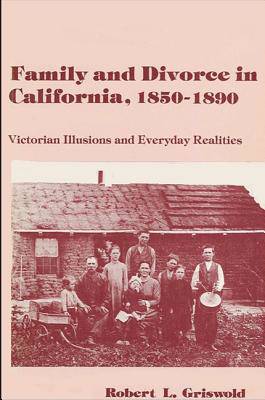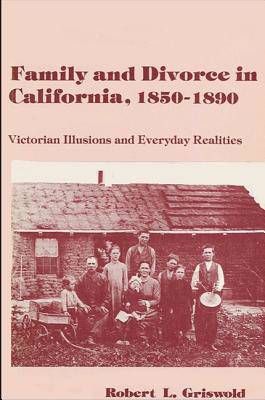
- Retrait gratuit dans votre magasin Club
- 7.000.000 titres dans notre catalogue
- Payer en toute sécurité
- Toujours un magasin près de chez vous
- Retrait gratuit dans votre magasin Club
- 7.000.0000 titres dans notre catalogue
- Payer en toute sécurité
- Toujours un magasin près de chez vous
Family and Divorce in California, 1850-1890
Victorian Illusions and Everyday Realities
Robert L GriswoldDescription
Few of the men and women who came to California after the discovery of gold had the opportunity or the inclination to record their thoughts about family life. Their family experience, like that of most nineteenth-century Americans, is obscured by time and an absence of sources.
Family and Divorce in California succeeds in reconstructing the private world of farmers, laborers, small-town merchants tradesmen, and housewives through an examination of local newspapers, census data, legal documents, and, above all, divorce records during the years 1850 to 1890. Some 400 divorce cases from two rural counties form the core of the study.
Here we see how the compassionate ideal, the cult of true womanhood, and the work ethic actually affected the attitudes and behavior of working-class and rural as well as urban, middle-class people. A wide variety of topics is covered:
basic family values
women's health, work, sexuality, character, and independence
men's work, sexual conduct, and affective relations
the nature of parenthood, childhood, and marital companionship
domestic violence
The book also explores the early years of the divorce crisis that began in the 1880s and answers the questions of how and why it developed.
Spécifications
Parties prenantes
- Auteur(s) :
- Editeur:
Contenu
- Nombre de pages :
- 266
- Langue:
- Anglais
- Collection :
Caractéristiques
- EAN:
- 9780873956338
- Date de parution :
- 30-06-83
- Format:
- Livre relié
- Format numérique:
- Genaaid
- Poids :
- 471 g

Les avis
Nous publions uniquement les avis qui respectent les conditions requises. Consultez nos conditions pour les avis.






